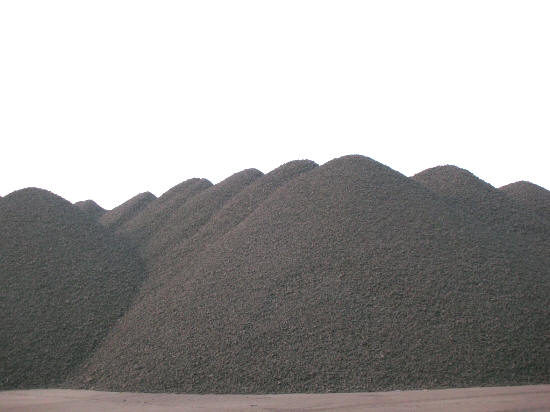
Detroit’s petcoke pile helps a struggling coal plant stay in business…more to come?
The story of the Detroit petcoke pile should give the Obama administration some serious pause as they consider the Keystone XL decision.
A couple of weeks ago, the New York Times shone a front page light on a huge pile of petroleum coke (aka “petcoke”) along the banks of the Detroit River. Calling it the “the unloved, unwanted and long overlooked byproduct of Canada’s oil sands boom,” the Times echoed concerns we raised in our report earlier in the year about this dirty byproduct of refining heavy oils like Canadian tar sands.
The revelation that a huge pile of toxic petcoke was sitting in the open air along the banks of a river in Detroit has raised major concerns among community members and people all across the country.
But beyond the local impacts, one of the other key concerns we raised in our report back in January was that because petcoke is “priced to move” as a refinery waste product and can be burned essentially like coal, its growing abundance could help prop up a struggling coal power industry.
Well, in a new report from the New York Times on Thursday, we’re now seeing that fear play out in reality. The Times writes:
“A Canadian electrical power plant, owned by Nova Scotia Power, is chipping away at the three-story-high, blocklong pile of petroleum coke on Detroit’s waterfront. The company is burning the high-carbon, high-sulfur waste product because it is cheaper than natural gas.”
It turns out this power plant has been buying some of the petcoke that’s piling up in Detroit, citing “competitive reasons.” In other words, the Canadian utility company saw a cheap source of fuel and jumped on it, despite that fact that petcoke is dirtier and more carbon intensive than even dirty conventional coal.
But don’t take our word for it. Check out this quote from one of the utility’s spokespeople:
“We had been steadily increasing our use of gas because we could buy the fuel at relatively low prices and using it creates fewer emissions than coal…In this case, the switch to coal help save our customers money over continuing to use gas…”
Unfortunately, petcoke production is growing with the boom in heavy oil production, and would only continue to do so if the Keystone XL tar sands pipeline is approved.
As our report showed, Keystone XL would produce enough petcoke byproduct to fuel 5 coal plants, yet the State Department failed to acknowledge the impacts this would have on the climate and local communities. That resulted in its analysis being off by some 13% when it comes to greenhouse gas emissions.
The story of the Detroit petcoke pile should give the Obama administration some serious pause as they consider the Keystone XL decision. At a time when climate impacts are growing at a terrifying rate, do we really want to build a pipeline that will only help to prolong coal’s life while deepening our reliance on dirty oil at the same time?
